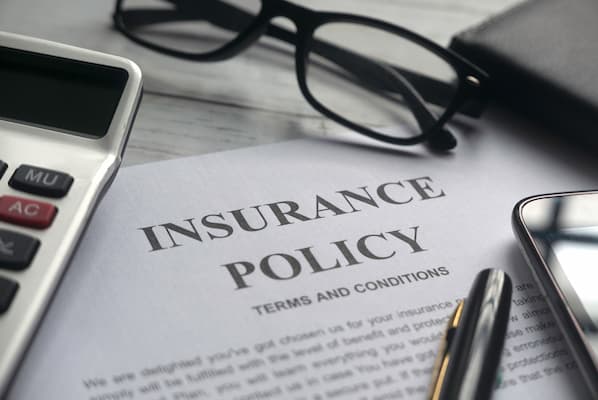The state of Florida operates on a points system, where any infraction that you make, either in the form of a moving or non-moving violation, reflects on your driving record as points against your license. A moving violation occurs when a driver does not follow the Florida traffic laws while their vehicle is in motion.
Examples of moving violations include speeding, running a red light, and careless or reckless driving. Non-moving violations occur when the vehicle is not moving, and include expired plates or equipment-related malfunctions such as broken or burnt-out taillights.
An accident may involve points from both categories, so it is important to read the accident report to understand the citations that have been issued. If you have been involved in an accident in Florida and are wondering how long does a car accident stay on your record, read on for more information.
When Will an Accident Go On Your Record?
According to Florida Highway Safety and Motor Vehicle, if you have been in a car accident in which you were at fault, the points which you incur will generally remain on your record between three and five years, depending on the type of violation that occurred to cause the accident.
More serious infractions may remain on your license for up to ten years. The citation you were issued by the police officer at the scene of the accident will list the violations that you were charged with.

If you were in an accident but were not at fault, you will not receive any points on your license because you will not be charged with a violation. If you were charged with a traffic violation but feel you were wrongfully determined to be at fault, it is important that you contact an attorney. They will be able to help you determine whether or not you were at fault. If you were not the at-fault party, they can assist you in navigating the process of clearing your record.
How Many Points Will You Receive On Your License for an Accident?
Many states use a system of points against drivers’ licenses for traffic violations, and each state determines the number of points for each infraction differently. The number of points that you may receive on your license for an accident in Florida will vary depending on the exact circumstances of the accident.
Moving violations such as speeding or careless driving will result in 3 points on your license. Reckless driving and traffic signal violations result in 4 points. Leaving the scene of an accident without providing your information will result in 6 points added to your record.
If a driver accumulates 12 points or more within a 12-month period, their drivers’ license will be suspended for 30 days. If they accumulate 18 points or more within an 18-month period, their license will be suspended for 3 months. If they happen to accumulate 24 points or more within a 36-month period, their license will be suspended for up to 1 year.
If a driver commits 15 violations that result in 3 points each, or if they commit three major offenses within a 5-year period, their license will be revoked. These penalties have been determined by the Florida Department of Motor Vehicles for the safety of all drivers on the road.
Drivers may choose to sign up for an online traffic school course to remove the points from one traffic citation from their license. This may help them avoid the suspension of their license.
Significance of Your Driving Record In Determining Your Insurance Premiums
Your driving record is crucial to insurance companies in determining the premium you will be offered when you sign your insurance contract. When determining the premium to offer a driver, the company must consider the amount of risk that insuring each driver poses to them.

A driver with a clean record does not present an immediate risk to them to provide insurance, as they will rarely if ever, need to provide a payout. The company may offer these drivers a discounted rate when they inquire about coverage.
The more traffic violations and accidents you have on your record, the higher your premium will be, because of the risk level that you present to the insurance company. If you have several accidents on your record, this may place you in the high-risk category of drivers, requiring you to opt for non-standard insurance which can be costly.
Typically after 3-5 years, your violations and accidents are terminated and your record will clear.
How Will Being In an Accident Affect My Insurance Rates?
A question on many drivers’ minds immediately following an accident is whether the incident will affect their current insurance premiums. Rest assured, Florida laws have built-in protections for drivers, preventing insurance companies from requesting an additional premium for a policy of:
- Personal injury protection (PIP)
- Motor vehicle liability
- Medical expenses
- Car insurance
Florida happens to be a no-fault insurance state, which means that drivers are able to file a claim with their own insurance company immediately following an accident regardless of who was at fault. This allows drivers to get the assistance they need with medical treatment right away up to $8,000 through their PIP policy, as long as they seek treatment within 14 days following the accident. They will also be able to make a claim for their property damage.
The only instance in which the insurance company will be able to raise your premium following an accident would be if they make a good faith determination that you were substantially at fault in the accident. If this is the case, your rates may increase up to 10% after your accident.
Should you have concerns about this, it is advisable to contact a personal injury attorney to discuss your accident and seek representation in the matter.
How Long Will My Insurance Rates Be Affected?
If you were determined to be at fault for an accident, the resulting points that were added to your license will typically remain on your record for 3-5 years. Depending on your insurance company and your tenure with that company, they may evaluate your driving record for either the previous three or five years to make determinations regarding your rates. If your record has cleared and no longer lists traffic violations, your insurance company may reward you for safe driving by dropping your rates.
You may also choose to shop around for alternate rates with a different insurance company. Keep in mind, however, that traffic violations are public knowledge, and the points incurred will be connected to your drivers’ license. These will be considered when calculating your new potential premium.
What If I Don’t Have Car Insurance?
If you have no auto insurance and are in a car accident that is not your fault, you should look at our guide on what steps you should take first.
Contact Carey Leisure Carney for Your Florida Car Accident
When creating an accident report, the correct person is not always determined to be at fault. If you are wondering how long does a car accident stay on your record and you believe that you have been wrongfully determined to be at fault for an accident, contact the attorneys at Carey Leisure Carney for a free consult. Our team will listen to the facts of your accident and will be able to make an informed opinion of whether or not you were at fault.
If it is determined that you are not at fault, you can trust the team at Carey Leisure Carney to represent you in your car accident injury claim. They can also work with you to help clear your record. There is no reason to accrue points on your license unnecessarily.
Contact the Law Offices of Carey Leisure Carney today for a free consultation today.
